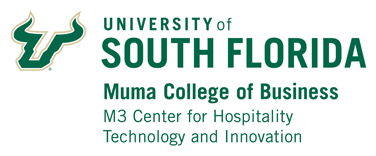Abstract
As technology continues to revolutionize the hospitality and tourism industry, the issues of digital equity and digital divide have gained increasing prominence (Minghetti & Buhalis, 2010; Reverte & Luque, 2021). While digital advancements offer unprecedented opportunities for businesses and consumers, they also risk exacerbating existing inequalities (Wu & Yang, 2023). This is particularly evident in the growing digital divide, referring to the capabilities gap of individuals, groups and regions to access and process digital information technology (OECD, 2001). The rapid pace of technological advancement has left certain groups struggling to keep up. These digital disadvantaged groups—comprising individuals with limited access to technology, low digital literacy, or socio-economic barriers—are increasingly at risk of being excluded from the benefits of technological innovations in hospitality and tourism (Shin & Baek, 2023). This viewpoint paper explores the challenges faced by digital disadvantaged groups, emphasizes the importance of shaping their experiences in the hospitality and tourism industry to promote digital inclusion and equity, and advocates for focused research in this area.
Keywords
digital divide, digital inclusion, disadvantaged groups, technological innovations
ORCID Identifiers
Xi Y. Leung: https://orcid.org/0000-0002-5257-8686
DOI
10.5038/2771-5957.3.2.1056
Recommended Citation
Leung, X. Y. (2024). Bridging the digital divide in hospitality and tourism: Digital inclusion for disadvantaged. Journal of Global Hospitality and Tourism, 3(2), 181-184. https://www.doi.org/10.5038/2771-5957.3.2.1056
Creative Commons License

This work is licensed under a Creative Commons Attribution-Noncommercial 4.0 License
Included in
Business Administration, Management, and Operations Commons, Hospitality Administration and Management Commons, Tourism and Travel Commons


